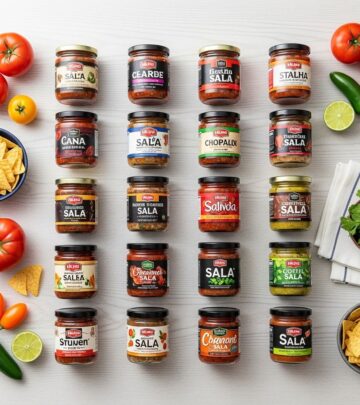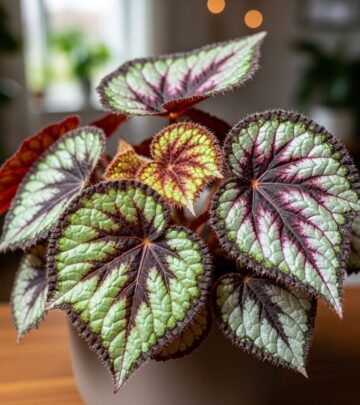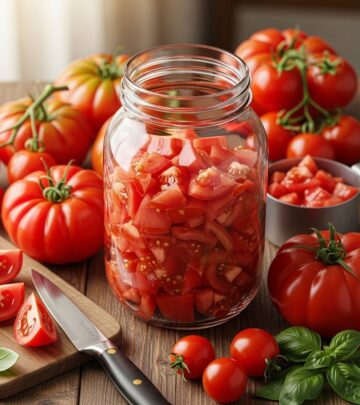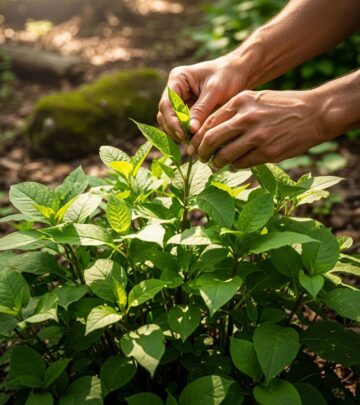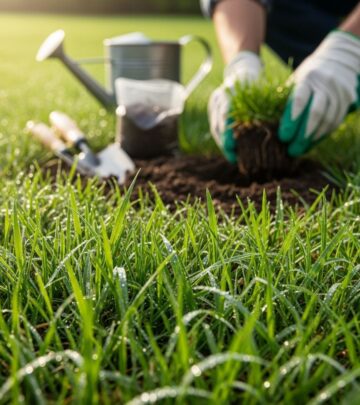Onion Companion Planting: Complete Guide To Thriving Gardens
Harness the power of companion planting with onions to enhance yields, control pests, and create a thriving, harmonious vegetable garden.
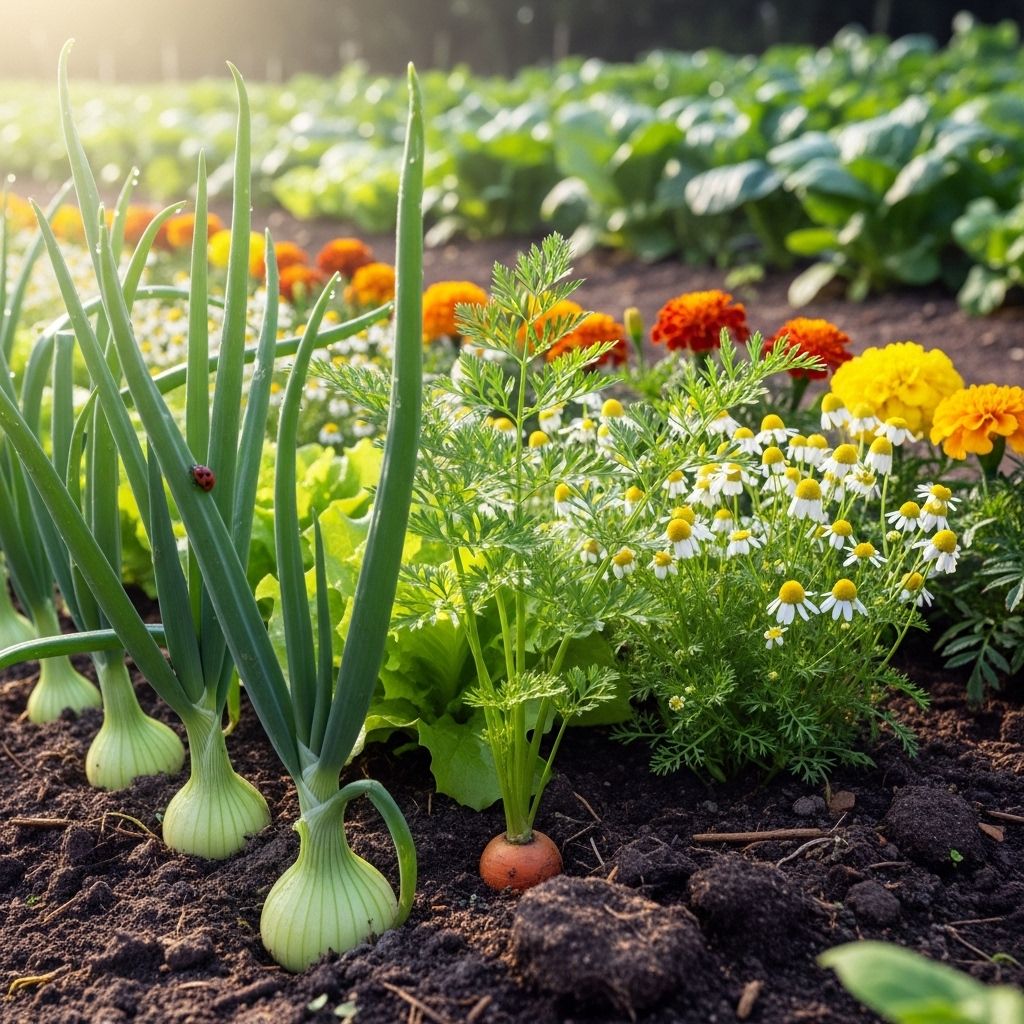
Image: HearthJunction Design Team
Onion Companion Planting: Boost Your Garden With Allium Allies
Companion planting is an age-old gardening strategy that has enjoyed a resurgence as more people embrace organic methods. By pairing plants thoughtfully, gardeners can harness natural synergies for healthier crops, bigger harvests, and natural pest control. Among the top contenders for companion planting are onions and their allium relatives. Let’s explore how onions can transform your vegetable beds, which plants make the best companions (and which to avoid), as well as practical tips for successful integration.
What Is Companion Planting?
Companion planting is the practice of growing certain plants near one another to reap mutual benefits. These can include:
- Enhanced pest and disease resistance
- Improved pollination and yields
- Optimized use of space and resources
- Better flavor and growth for certain crops
Plants interact with each other in surprising ways. Some emit scents or chemicals that repel pests, others attract beneficial insects, and some pairings improve soil health by fixing nutrients or providing shade and groundcover.
The Benefits of Growing Onions in the Vegetable Garden
Onions (Allium cepa), along with garlic, leeks, and shallots, are part of the allium family. They are more than just flavorful kitchen staples—they are powerful allies in the garden. Here’s how onions benefit your gardening efforts:
- Pest Repellent: The strong sulfurous scent of onions deters aphids, carrot flies, cabbageworms, and other common pests.
- Low Competition: Onions have shallow roots and don’t heavily compete for nutrients, making them excellent neighbors for many crops.
- Soil Health: Onions help break up dense soil and can suppress some soil-borne pathogens.
- Flavor Boost: Some gardeners believe that growing onions near certain vegetables can enhance flavor, particularly in tomatoes and peppers.
How to Start Onion Companion Planting
Before pairing onions with other crops, identify your goals. Do you want to maximize yield, repel pests, or provide beneficial shade and mulching? Starting with onion sets (immature bulbs) is the easiest way to plant onions for companion planting. Simply nestle them among your chosen crops, taking care not to plant too close and restrict air circulation. Sprouted onions from the kitchen can also be tucked into empty spots throughout garden beds.
Best Onion Companion Plants
Certain vegetables, herbs, and even some flowers thrive alongside onions. Here’s a breakdown of the best onion companions and why they work well together:
Tomatoes (Solanum lycopersicum)
- Onions repel aphids and other pests that target tomatoes.
- Planting onions near tomatoes is believed to improve tomato flavor.
Peppers (Capsicum annuum)
- Both hot and sweet peppers benefit from onions’ pest-repelling properties.
- Onions don’t compete for nutrients, allowing peppers to flourish.
Strawberries (Fragaria × ananassa)
- Onions help deter pests that feed on strawberry plants.
- Both plants enjoy similar soil conditions and make efficient use of space.
Lettuce (Lactuca sativa)
- Lettuce and onions have complementary root systems and nutritional needs.
- The shade cast by taller onions can help protect lettuce from harsh sun.
Carrots (Daucus carota)
- Onions repel carrot flies, while carrots help deter onion flies—a mutually beneficial pairing.
- This classic duo maximizes soil use; onions grow shallow, carrots go deep.
Cabbage Family (Brassicas: Broccoli, Cabbage, Kale)
- Onions help repel cabbageworms, cabbage moths, and other brassica pests.
- Plant onions as a border around brassica beds for best results.
Beets (Beta vulgaris)
- Beets and onions cohabit well without competing for resources.
- Onions may help repel beet pests such as leaf miners.
Herbs
- Dill: Attracts beneficial insects while onions repel pests.
- Camomile: Promotes onion growth and flavor.
Other Alliums (Garlic, Shallots, Leeks)
- Compatible with one another for maximizing space and pest protection.
- Do keep in mind crop rotation to avoid disease build-up; don’t plant alliums in the same spot year after year.
Worst Companion Plants for Onions
While onions are versatile, a few vegetables do not make good allium neighbors. Some plant pairings can result in stunted growth, lower yields, or increased pest issues. Avoid planting onions with:
- Beans and Peas (Legumes): Legumes (including green beans, bush beans, pole beans, and peas) can be inhibited by onions, which may stunt their growth and reduce nitrogen fixation.
- Asparagus: Both crops struggle to thrive together, likely due to root competition.
- Sage: This herb can impede onion bulb development.
- Other Alliums in the Same Bed Every Year: Rotate crops to prevent disease and pest buildup.
| Good Onion Companions | Bad Onion Companions |
|---|---|
| Tomatoes | Beans |
| Peppers | Peas |
| Carrots | Asparagus |
| Beets | Sage |
| Cabbage Family (Broccoli, Kale, Cabbage) | Other alliums (if no crop rotation) |
| Lettuce | |
| Strawberries |
Why Some Pairings Work and Others Don’t
What makes a good or bad companion for onions? Plant biochemistry and root structure often tell the story. Beans and peas interact with soil bacteria to fix nitrogen, a process that alliums can disrupt. Asparagus roots compete for space and resources with onion roots, leading to lower yields for both. On the other hand, onions repel pests and do not compete heavily for nutrients or space with most shallow-rooted crops, making them a versatile companion for many vegetables and herbs.
Strategic Planting: Maximizing Benefits in Your Garden
The key to success with onion companion planting is strategic placement. Consider the following tips:
- Border Crops: Plant onions along the edges of beds to form a protective scent barrier against pests.
- Mixed Beds: Interplant onions with carrots, lettuce, or beets for space maximization and mutual pest protection.
- Crop Rotation: Shift onion and allium locations yearly to prevent soil-borne diseases from accumulating.
Practical Tips for Planting Onions With Companions
- Plant onion sets about 4 inches apart, leaving enough room for companion crops to develop.
- Try alternating rows of onions and carrots for pest synergy.
- Add mulch to help preserve soil moisture and keep weeds at bay, benefiting both onions and their companions.
- Water evenly—onions do not like soggy soil, and many companions appreciate consistent moisture as well.
- Harvest onions once their tops yellow and fall over, being careful not to disturb nearby crops still producing.
Frequently Asked Questions (FAQs)
Q: Can I plant onions next to garlic or leeks?
A: Yes, onions, garlic, and leeks are compatible and help repel similar pests. However, avoid planting alliums in the same soil every year to reduce disease risk.
Q: How close can I plant onions to other vegetables?
A: Keep onions at least 4 inches apart from their neighbors to ensure good air circulation and prevent overcrowding.
Q: Will onions affect the taste of nearby vegetables?
A: Some gardeners report improved flavor in tomatoes and peppers grown near onions, though scientific evidence is limited. There is no evidence that onions negatively impact the taste of other crops.
Q: Are there flowers that benefit from being near onions?
A: Marigolds and chamomile may benefit from onions’ pest-repelling properties, while marigolds add extra pest resistance to the bed.
Q: What is the best way to rotate onions and other alliums?
A: Avoid planting onions or any allium relatives in the same spot for at least 3–4 years. Rotate with legumes, brassicas, or leafy greens.
Conclusion
Onion companion planting is a time-tested, organic practice that can help you deter pests, improve yield, and create a thriving, diverse vegetable garden. By combining onions with their favorite allies—such as tomatoes, peppers, carrots, and brassicas—while steering clear of problematic pairings like beans, peas, and asparagus, you’ll enjoy healthier plants and tastier harvests. Remember to use strategic placement, practice crop rotation, and maintain healthy soil conditions for the best results. With onions as your ally, your garden will be both productive and resilient.
References
Read full bio of Shinta






